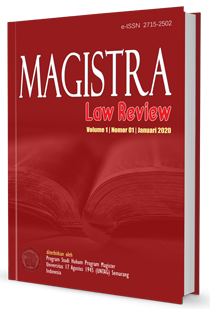ASPEK HUKUM KEBEBASAN BERPENDAPAT DALAM MEDIA SOSIAL DAN PERLINDUNGAN HUKUM MASYARAKAT ATAS BERITA BOHONG
Abstract
Full Text:
PDF (Bahasa Indonesia)References
Benuf, Kornelius, and Muhamad Azhar, ‘Metodologi Penelitian Hukum sebagai Instrumen Mengurai Permasalahan Hukum Kontemporer’, Gema Keadilan, 7.1 (2020), pp. 20–33, doi:10.14710/gk.2020.7504
Karyono, Hadi, and Krismiyarsi Krismiyarsi, ‘Mencari Pemimpin Negarawan Membagun Demokrasi Berkeadaban Dan Dinamika Pemilihan Umum Presiden 2024 Menuju Indonesia Emas’, KERTHA WICAKSANA, 17.1 (2023), pp. 42–49
Musa, Muhammad Rafhael Purnawan, and others, ‘Human Rights and Pancasila: A Case of Tionghoa Ethnic Discrimination in Indonesia’, Indonesian Journal of Pancasila and Global Constitutionalism, 1.1 (2022), pp. 119–70, doi:10.15294/ijpgc.v1i1.56879
Nasution, Latipah, ‘Hak Kebebasan Berpendapat dan Berekspresi dalam Ruang Publik di Era Digital’, ADALAH, 4.3 (2020), pp. 37–48, doi:10.15408/adalah.v4i3.16200
Nations, United, ‘Universal Declaration of Human Rights’, United Nations (United Nations) [accessed 24 June 2025]
Raskasih, Fadilah, ‘BATASAN KEBEBASAN BERPENDAPAT MELALUI MEDIA ELEKTRONIK DALAM PERSPEKTIF HAM DIKAITKAN DENGAN TINDAK PIDANA MENURUT UU ITE’, JOURNAL EQUITABLE, 5.2 (2020), pp. 147–67, doi:10.37859/jeq.v5i2.2462
Stella, Helen, Gunardi Lie, and Moody Rizqy Syailendra, ‘Tindak Pidana Penyebaran Berita Bohong Berdasarkan Uu Ite Terhadap Dampak Dari Kebebasan Berpendapat Masyarakat Di Media Sosial (Kriminalisasi Kasus Jerinx)’, Multilingual: Journal of Universal Studies, 3.4 (2023), pp. 472–78
Tanaya, Flavia, and others, ‘Aspek Kebebasan Berpendapat Menurut Hukum Positif untuk Meminimalisir Penyebaran Berita Bohong (Hoax) Menjelang Pemilihan Umum di Indonesia’, Jurnal Interpretasi Hukum, 4.2 (2023), pp. 358–66, doi:10.22225/juinhum.4.2.7821.358-366
Wibowo, Andre Tri, ‘Indonesian “Saracen†Syndicate and the Legal Gap for Hoax Eradication in Indonesia’, Law Research Review Quarterly, 7.2 (2021), pp. 183–96, doi:10.15294/lrrq.v7i1.43190
DOI: http://dx.doi.org/10.56444/malrev.v6i02.6307
Refbacks
- There are currently no refbacks.
Publishing Office :
Indexed in :










